
Majestic German Alps: A Mountainous Haven
Nestled in the heart of Europe, the German Alps offer an enchanting blend of natural beauty and cultural richness. Stretching across southern Germany, this stunning mountain range is a paradise for outdoor enthusiasts and nature lovers alike. Whether you're an avid hiker, a winter sports aficionado, or simply someone who loves breathtaking views, the German Alps have something for everyone. The region is dotted with charming villages that seem to be lifted straight out of a fairy tale. Traditional Bavarian architecture, complete with flower-filled balconies and quaint churches, adds to the scenic charm. In winter, these villages transform into idyllic snow-covered landscapes, perfect for skiing, snowboarding, and cozy evenings by the fireplace. In summer, the lush green meadows and crystal-clear lakes provide endless opportunities for hiking, cycling, and swimming. Beyond its natural splendor, the German Alps are steeped in history and culture. From ancient castles perched on mountain tops to local festivals celebrating Bavarian traditions, there is always something to discover. Don't miss the chance to indulge in local cuisine, with hearty dishes like schnitzel, pretzels, and the famous Bavarian beer. The German Alps are more than just a visual treat; they are a complete sensory experience.
Local tips in Alps
- Visit during off-peak seasons to avoid crowds and enjoy a more tranquil experience.
- Pack layers of clothing, as weather in the mountains can change rapidly.
- Try local specialties like Kaiserschmarrn and Weisswurst for an authentic culinary experience.
- Purchase a regional rail pass if you plan to explore multiple towns and villages.
- Book accommodations well in advance during popular events like Oktoberfest or the ski season.
Majestic German Alps: A Mountainous Haven
Nestled in the heart of Europe, the German Alps offer an enchanting blend of natural beauty and cultural richness. Stretching across southern Germany, this stunning mountain range is a paradise for outdoor enthusiasts and nature lovers alike. Whether you're an avid hiker, a winter sports aficionado, or simply someone who loves breathtaking views, the German Alps have something for everyone. The region is dotted with charming villages that seem to be lifted straight out of a fairy tale. Traditional Bavarian architecture, complete with flower-filled balconies and quaint churches, adds to the scenic charm. In winter, these villages transform into idyllic snow-covered landscapes, perfect for skiing, snowboarding, and cozy evenings by the fireplace. In summer, the lush green meadows and crystal-clear lakes provide endless opportunities for hiking, cycling, and swimming. Beyond its natural splendor, the German Alps are steeped in history and culture. From ancient castles perched on mountain tops to local festivals celebrating Bavarian traditions, there is always something to discover. Don't miss the chance to indulge in local cuisine, with hearty dishes like schnitzel, pretzels, and the famous Bavarian beer. The German Alps are more than just a visual treat; they are a complete sensory experience.
When is the best time to go to Alps?
Iconic landmarks you can’t miss
Neuschwanstein Castle
Experience the enchanting beauty of Neuschwanstein Castle, a stunning landmark nestled in the Bavarian Alps, perfect for every traveler seeking history and magic.
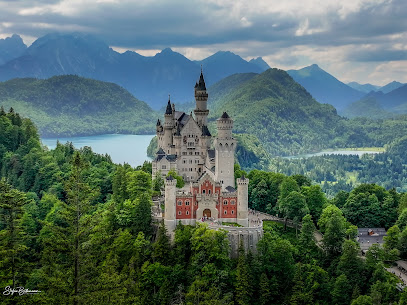
Fortress Hohensalzburg
Explore the Fortress Hohensalzburg, a historic gem in Salzburg offering breathtaking views, rich history, and fascinating museums.

Hohenschwangau Castle
Explore Hohenschwangau Castle, a stunning Bavarian gem nestled in the Alps, rich in history and breathtaking views, perfect for every traveler.
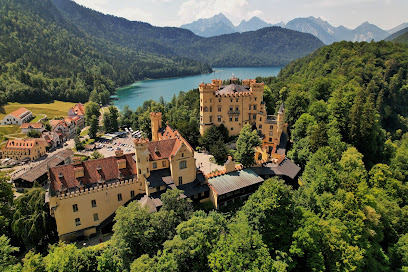
Mirabell Palace
Explore the stunning gardens and opulent architecture of Mirabell Palace, a historical gem in Salzburg rich in culture and beauty.
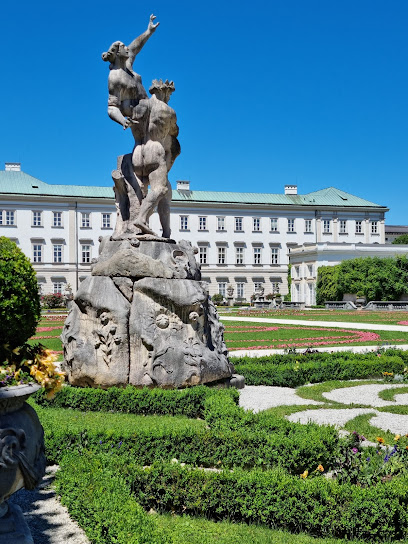
Schloss Hellbrunn
Explore the magical gardens and fascinating trick fountains of Schloss Hellbrunn, a historic palace in Salzburg, Austria, offering unique experiences for every traveler.

Linderhof Palace
Experience the opulent beauty of Linderhof Palace, a stunning castle nestled in the Bavarian Alps, rich in history and surrounded by breathtaking landscapes.
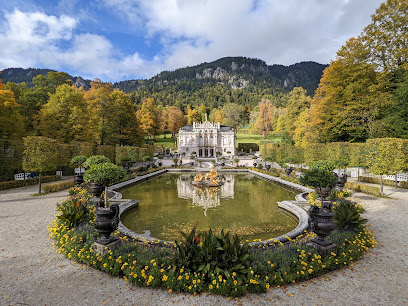
The Eagle's Nest
Discover the breathtaking views and historical significance of the Eagle's Nest, a must-visit landmark in the Bavarian Alps.

Partnachklamm
Discover the enchanting Partnachklamm, a breathtaking gorge in Garmisch-Partenkirchen, where nature meets adventure in the heart of the Bavarian Alps.
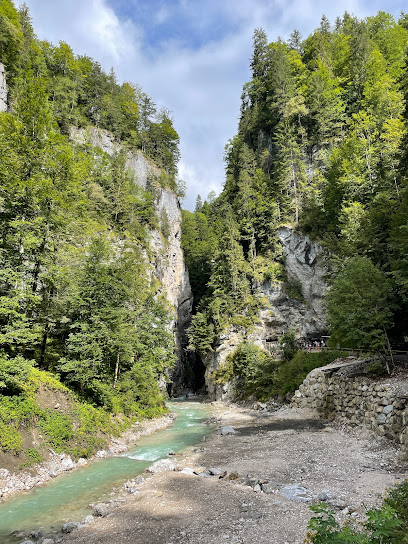
Breitachklamm
Discover the breathtaking beauty of Breitachklamm, a stunning gorge in the Allgäu Alps, perfect for hiking and exploring natural wonders.
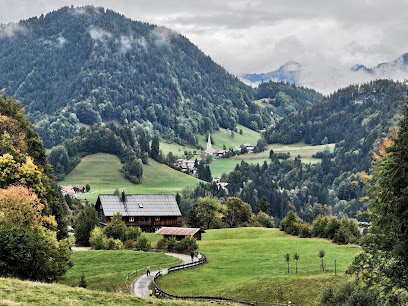
Zugspitze
Explore Zugspitze, Germany's highest peak, where adventure meets breathtaking alpine scenery, perfect for both thrill-seekers and nature lovers.
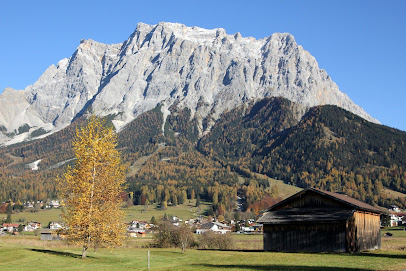
Walhalla
Discover Walhalla, a stunning monument in Bavaria that celebrates German history and culture with breathtaking views and rich heritage.
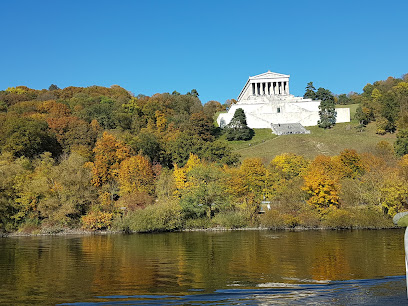
Nationalpark Berchtesgaden
Explore the breathtaking landscapes and diverse ecosystems of Nationalpark Berchtesgaden, a must-visit destination for nature lovers and outdoor enthusiasts.
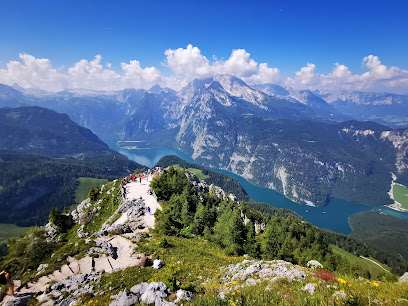
Alpspix
Discover the breathtaking views and thrilling experiences at Alpspix, the stunning mountain cable car attraction in Garmisch-Partenkirchen.
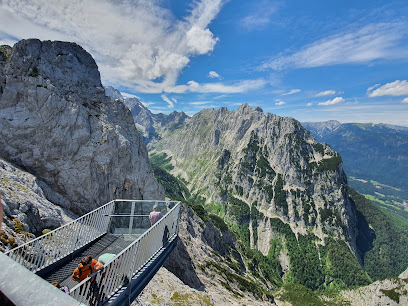
Leutasch Gorge
Explore the breathtaking beauty of Leutasch Gorge, a stunning natural wonder in the Tyrolean Alps of Austria, perfect for nature lovers and adventure seekers.
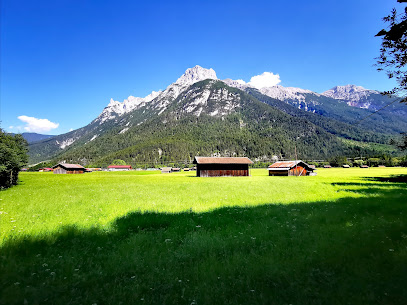
Burgruine Falkenstein Allgäu
Explore Burgruine Falkenstein, a captivating medieval ruin in Allgäu, offering stunning views and a rich historical experience.
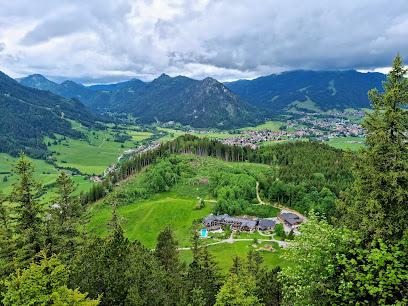
Unmissable attractions to see
Neuschwanstein Castle
Experience the fairytale magic of Neuschwanstein Castle, a stunning architectural masterpiece nestled in the heart of the Bavarian Alps.
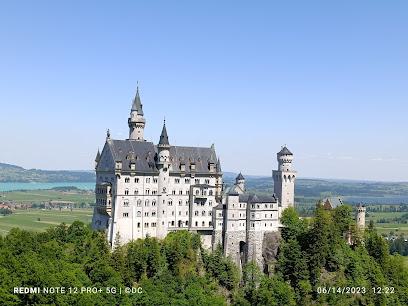
Neuschwanstein Castle
Discover Neuschwanstein Castle: a fairytale palace nestled in the Bavarian Alps, inspired by King Ludwig II and the legends of the Middle Ages.
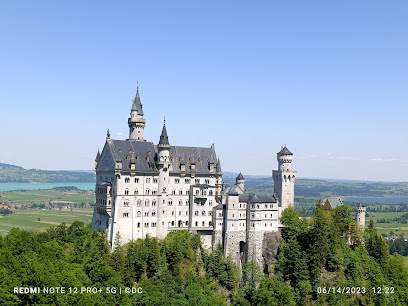
Hohenschwangau Castle
Explore Hohenschwangau Castle, the 19th-century neo-Gothic palace and childhood home of King Ludwig II, nestled in the scenic Bavarian Alps.
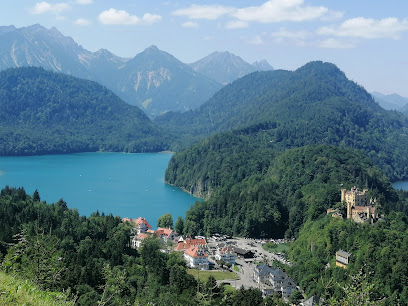
Linderhof Palace
Step into the fairytale world of King Ludwig II at Linderhof Palace, a stunning testament to Bavarian royalty and opulent artistry.
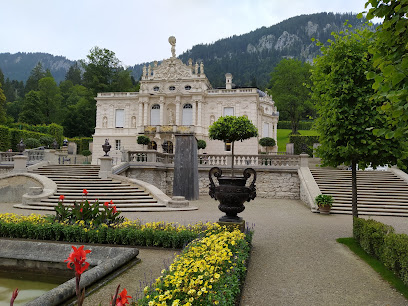
The Eagle's Nest
Visit the Eagle's Nest in Berchtesgaden for breathtaking views and a glimpse into World War II history. A unique alpine experience.
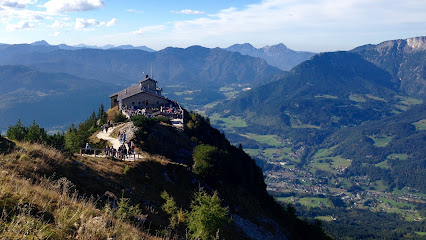
Partnachklamm
Explore the breathtaking Partnach Gorge in Garmisch-Partenkirchen: a natural wonder with towering cliffs and cascading waterfalls.
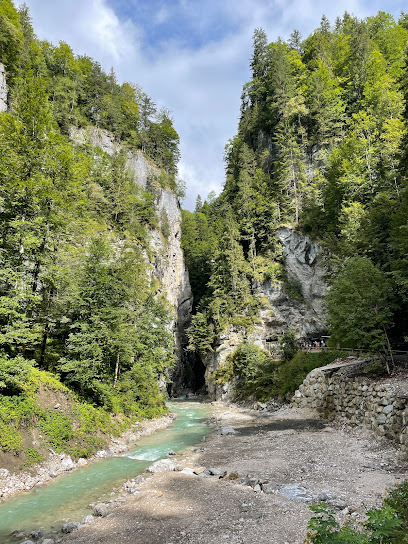
Breitachklamm
Explore the depths of Central Europe's most stunning gorge, a natural masterpiece carved over millennia near Oberstdorf.
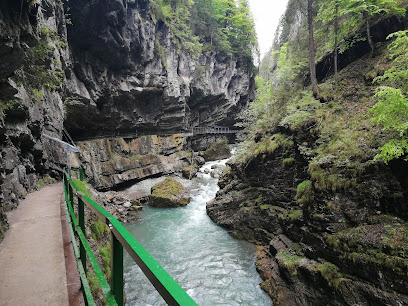
Seilbahn Zugspitze
Experience a record-breaking cable car ride to the summit of Germany's highest peak, offering panoramic alpine views and unforgettable memories.
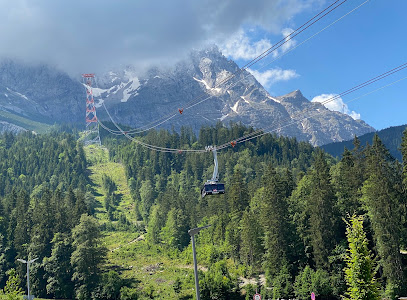
skywalk allgäu Wald Abenteuerwelt
Experience nature from a bird's eye view at skywalk allgäu Wald Abenteuerwelt. A treetop adventure with panoramic views of the Allgäu region.
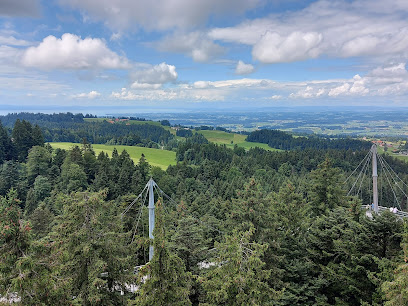
Nationalpark Berchtesgaden
Explore the stunning landscapes and diverse wildlife of Nationalpark Berchtesgaden, a must-visit destination in the Bavarian Alps.
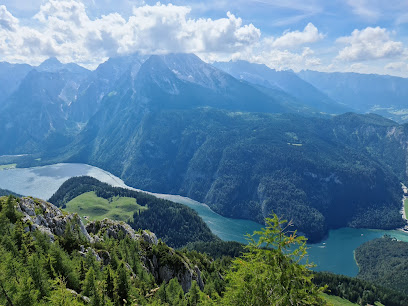
Alpspix
Experience breathtaking views from the AlpspiX viewing platform in Garmisch-Partenkirchen, suspended 1,000 meters above the stunning Höllental valley.
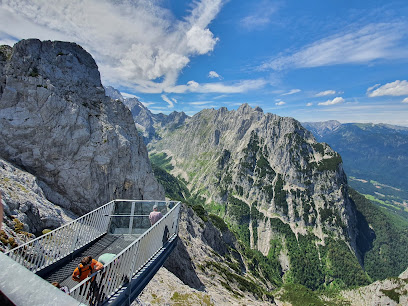
Lechfall
Experience the power and beauty of Lechfall, a historic man-made waterfall near Füssen, offering stunning views and natural wonders.
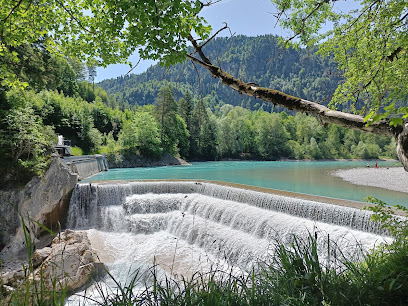
Leutasch Gorge
Discover the Leutasch Gorge: A stunning natural wonder with dramatic waterfalls, thrilling trails, and captivating legends in the heart of the Alps.
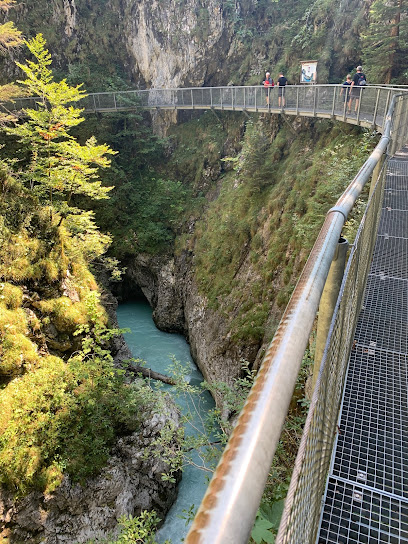
Buchenegger Wasserfälle
Immerse yourself in nature at Buchenegger Wasserfälle, where breathtaking waterfalls and lush trails create unforgettable experiences in the Bavarian Alps.
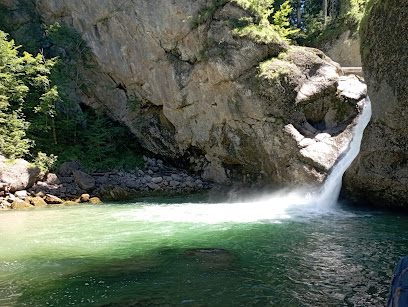
Festspielhaus Neuschwanstein
Experience world-class musicals and events at Festspielhaus Neuschwanstein, with stunning views of Germany's fairytale castle.
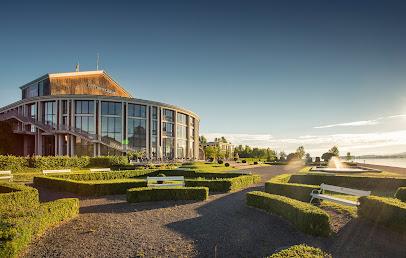
Essential places to dine
Alpe Dornach
Experience exquisite dining and breathtaking alpine views at Alpe Dornach in Oberstdorf – your perfect retreat in Bavaria.
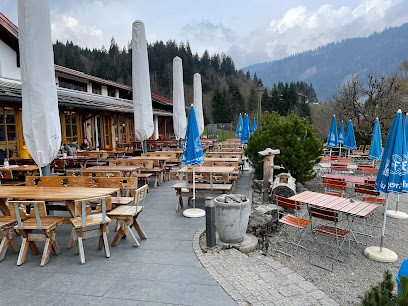
Dorf Alm Willingen
Discover culinary delights and vibrant nightlife at Dorf Alm Willingen - your gateway to local flavors and unforgettable experiences.
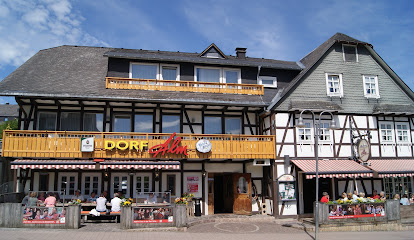
Zum Wildschütz
Discover the heart of Bavarian cuisine at Zum Wildschütz in Garmisch-Partenkirchen – where tradition meets flavor in every bite.
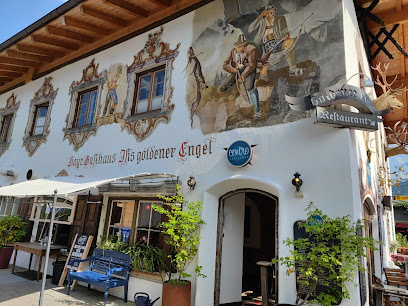
Zum Dürnbräu
Indulge in authentic Bavarian flavors at Zum Dürnbräu – where tradition meets taste in the heart of Munich.
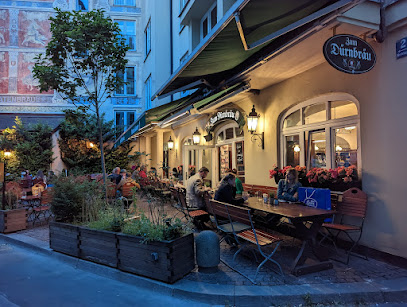
seeRestaurant EIBSEE Pavillon
Experience exquisite dining at EIBSEE Pavillon with stunning lake views and delicious Bavarian cuisine amidst nature's beauty.
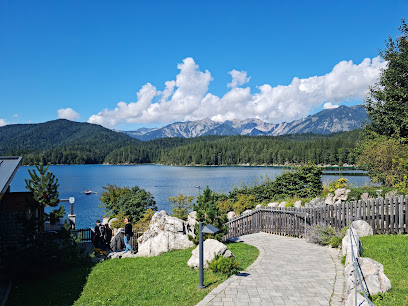
At the Olives-farmer
Experience authentic local cuisine amidst breathtaking alpine views at At the Olives-farmer in Füssen.
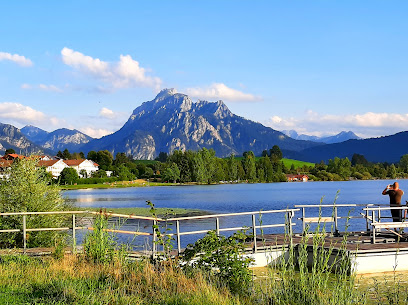
Bräustüberl Garmisch
Discover authentic Bavarian cuisine at Bräustüberl Garmisch, where hearty dishes meet locally crafted brews in an inviting alpine setting.
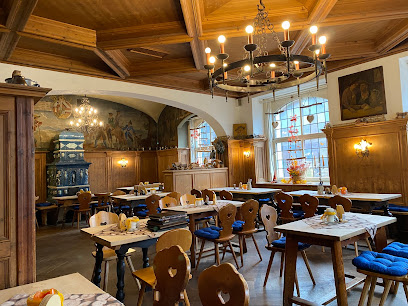
Kaiserschmarrn-Alm
Discover the taste of Bavaria at Kaiserschmarrn-Alm—home to the legendary shredded pancakes with stunning alpine views.
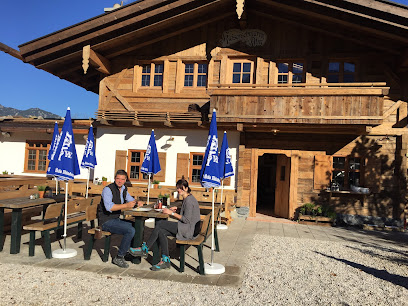
Gaststätte Flößerstube
Discover the flavors of Bavaria at Gaststätte Flößerstube, where authentic cuisine meets warm hospitality in Garmisch-Partenkirchen.
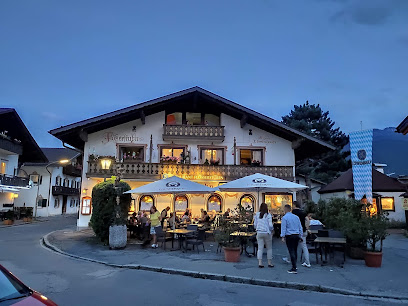
Gletscherrestaurant Sonnalpin
Experience breathtaking Alpine views and delicious Bavarian cuisine at Gletscherrestaurant Sonnalpin on Zugspitze.
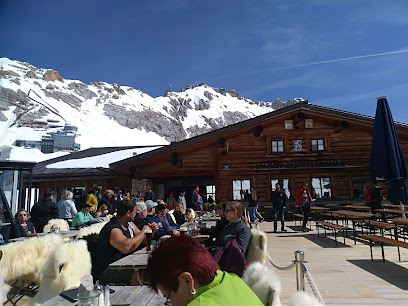
Panorama Lounge 2962
Discover breathtaking views and exquisite alpine cuisine at Panorama Lounge 2962 – an unforgettable dining experience in the heart of nature.
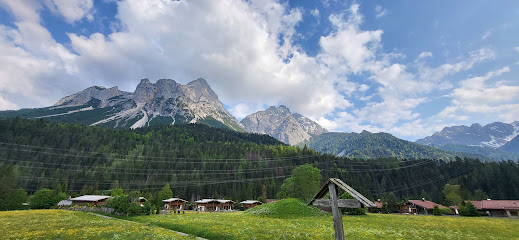
Hofbräustüberl Garmisch
Discover authentic Bavarian cuisine at Hofbräustüberl Garmisch - A delightful blend of tradition, flavor, and stunning mountain views.
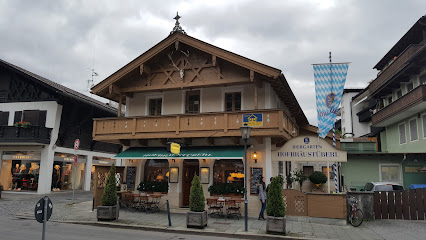
Toni Alm
Experience authentic Bavarian cuisine and breathtaking views at Toni Alm, your must-visit dining destination in Garmisch-Partenkirchen.
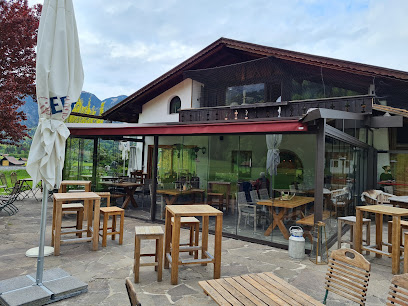
Die Laberei
Experience authentic Bavarian cuisine at Die Laberei in Oberammergau, offering stunning views and a warm atmosphere.
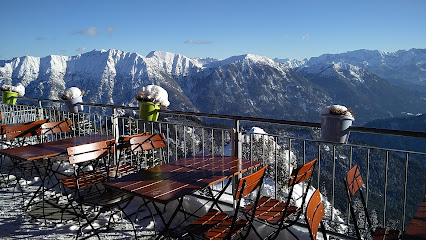
Alpenhof
Experience authentic Bavarian cuisine at Alpenhof in Garmisch-Partenkirchen – where tradition meets taste in a cozy atmosphere.
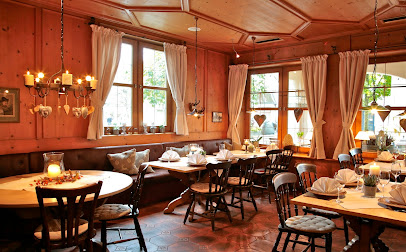
Markets, malls and hidden boutiques
Centro Oberhausen
Explore the diverse shopping, dining, and entertainment options at Centro Oberhausen, the top shopping mall in Germany for tourists.
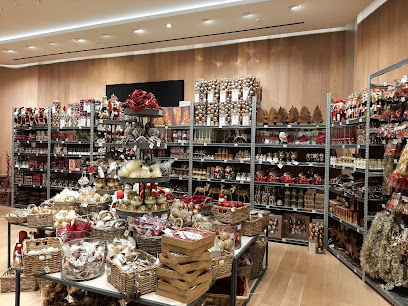
Pasing Arcaden
Experience shopping and dining at Pasing Arcaden, Munich's premier shopping mall, featuring over 150 stores and diverse culinary options.
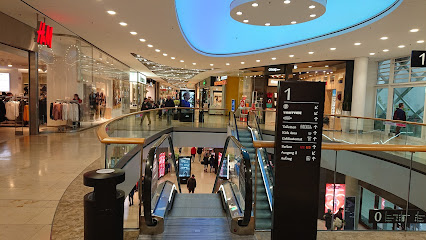
Riem Arcaden
Explore Riem Arcaden, Munich's bustling shopping mall, featuring diverse retail stores, delightful dining, and an inviting atmosphere for all visitors.
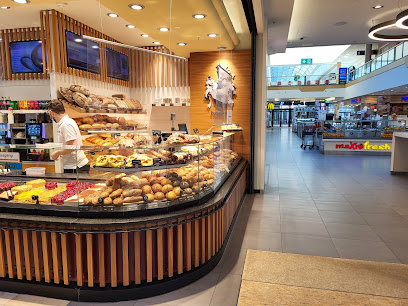
GALERIA München Marienplatz
Explore GALERIA München Marienplatz, a vibrant department store in the heart of Munich offering a unique shopping experience with local and international brands.
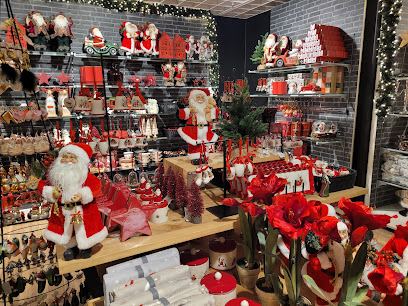
Landquart Fashion Outlet
Discover unbeatable deals on top designer brands at Landquart Fashion Outlet, your ultimate shopping destination in Switzerland.
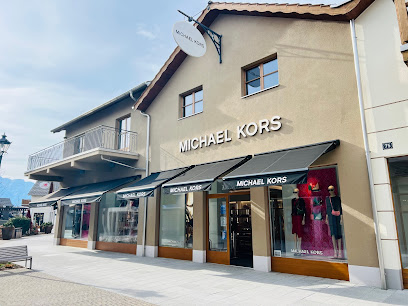
FMZ IMST
Explore FMZ IMST in Imst, Austria - an exciting shopping mall with diverse shops, a movie theater, and delightful dining options.
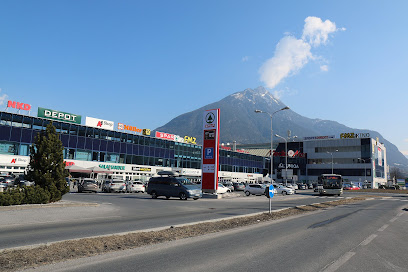
FOC Füssen Outlet Center
Discover amazing deals at the FOC Füssen Outlet Center, where top brands meet incredible prices in a scenic shopping destination.
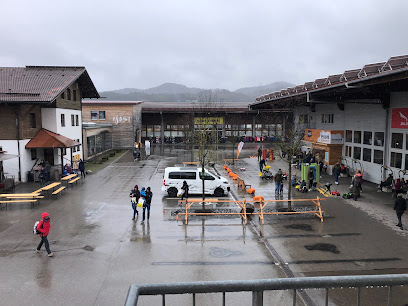
Enzianbrennerei Grassl / Distillery
Explore Enzianbrennerei Grassl in Berchtesgaden: A Distillery, Museum, and Deli Celebrating Bavarian Spirits and Heritage.
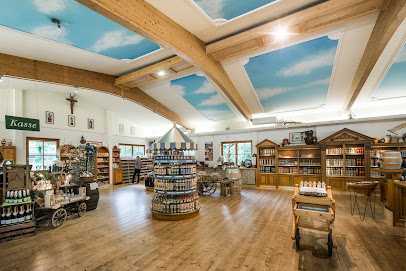
AlpseeOutlet
Discover amazing deals at AlpseeOutlet in Allgäu, where quality brands meet discounted prices in a stunning Bavarian setting.
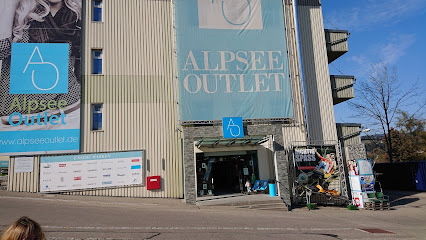
The sports market Fussen
Explore outdoor adventures with top-quality gear from The Sports Market in Füssen, your go-to sporting goods destination in Bavaria.
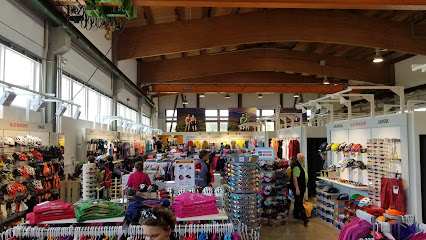
Allgäu Outlet
Shop the best of sportswear and clothing at Allgäu Outlet, where quality meets affordability in the heart of the Bavarian Alps.
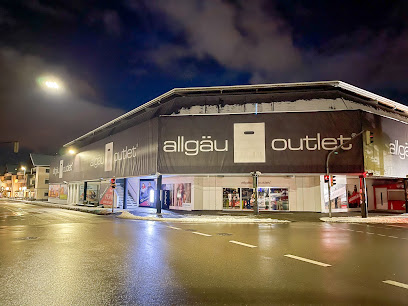
Schaukäserei Ammergauer Alpen eG
Experience the art of cheese-making in the breathtaking Ammergau Alps at Schaukäserei Ammergauer Alpen, where tradition meets flavor.
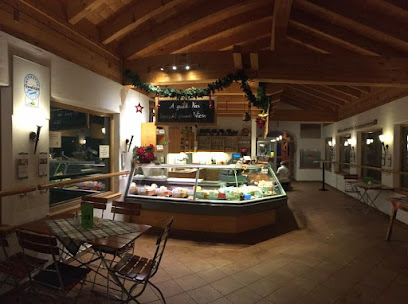
Funky Chocolate Club Switzerland
Experience the sweet magic of chocolate-making at Funky Chocolate Club in Interlaken, Switzerland - a paradise for chocolate lovers and curious adventurers alike.
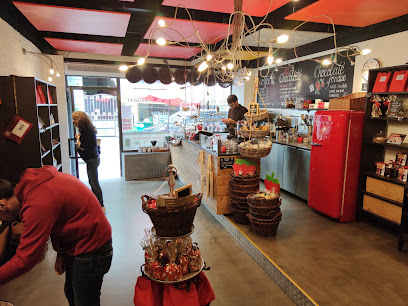
The sports market Oberstaufen
Discover the best sporting goods and outdoor gear at Oberstaufen's premier sports market, perfect for every adventure in the Bavarian Alps.
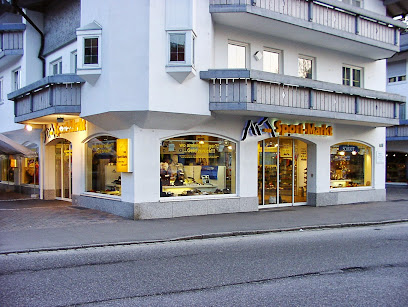
Ettal Abbey
Discover Ettal Abbey, a spiritual sanctuary nestled in the Bavarian Alps, featuring stunning baroque architecture, local brews, and serene landscapes.
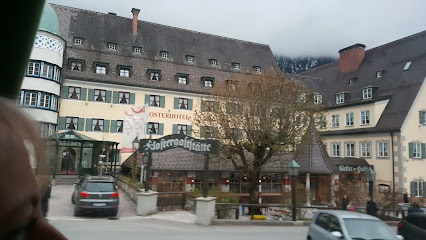
Essential bars & hidden hideouts
Kennedy's Bar and Restaurant
Discover the charm of Irish cuisine and hospitality at Kennedy's Bar and Restaurant in Munich, where every meal is a celebration.
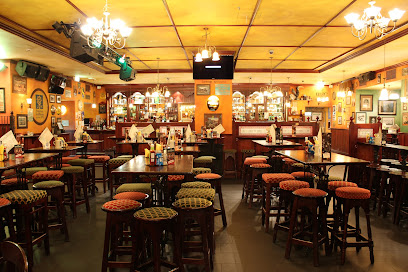
Alte Utting
Experience the unique charm of Alte Utting, Munich's floating gastropub offering delicious food, drinks, and live music in a vibrant atmosphere.
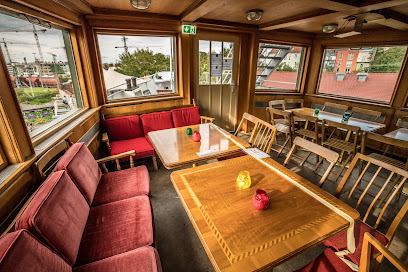
Fischer's Mohrenplatz
Discover authentic Bavarian flavors and a lively beer garden at Fischer's Mohrenplatz in Garmisch-Partenkirchen, a culinary gem in the Alps.
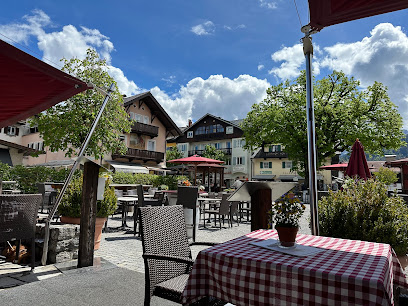
Bräustüberl Garmisch
Experience authentic Bavarian flavors and craft brews at Bräustüberl Garmisch in the heart of Garmisch-Partenkirchen.
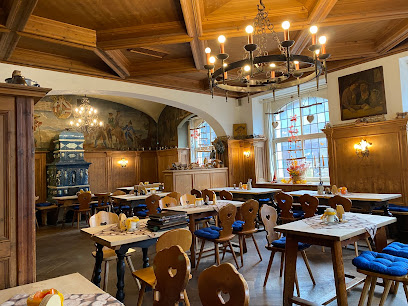
Bar Centrale
Experience authentic Italian cuisine in a warm and inviting setting at Bar Centrale, Munich's charming Italian restaurant and café.
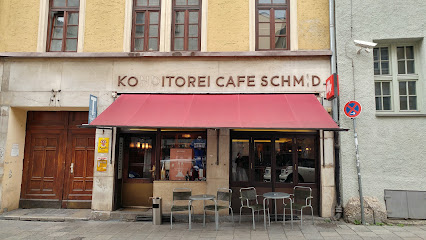
Kaiserschmarrn-Alm
Experience the alpine charm and indulge in authentic Kaiserschmarrn at Kaiserschmarrn-Alm in Garmisch-Partenkirchen.
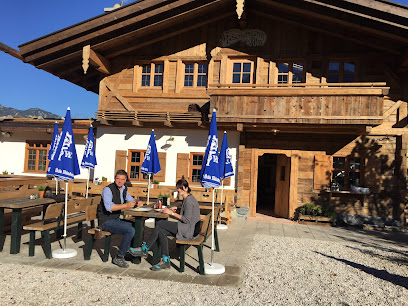
Ammergauer Maxbräu
Experience authentic Bavarian cuisine and locally brewed beer at Ammergauer Maxbräu in Oberammergau, a must-visit for culinary travelers.
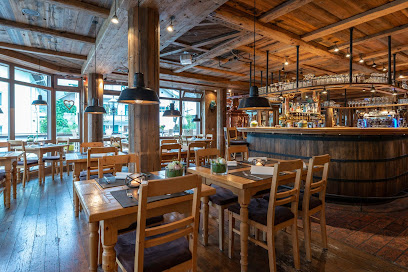
Berghütte Bärenfalle
Discover the taste of the Allgäu at Berghütte Bärenfalle, where regional flavors meet stunning mountain views in a cozy alpine setting.
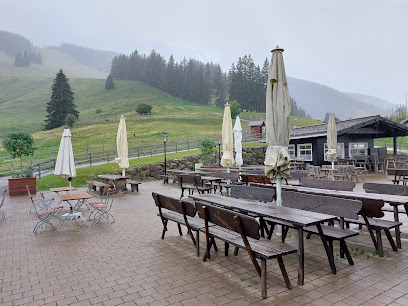
The Boilerman Bar - München
Discover the vibrant atmosphere and expertly crafted cocktails at The Boilerman Bar in Munich, a must-visit nightlife gem.
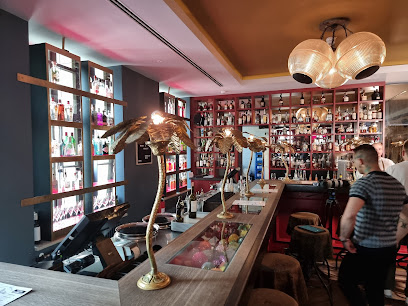
The Irish Pub
Experience the heart of Ireland at The Irish Pub in Garmisch-Partenkirchen, where authentic cuisine and lively atmosphere meet the beauty of the Bavarian Alps.
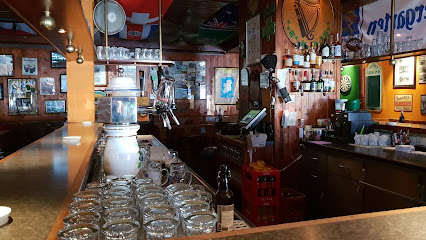
Peaches Neuhausen
Experience the vibrant atmosphere and diverse menu at Peaches Neuhausen, a must-visit bar and restaurant in Munich's charming Neuhausen-Nymphenburg district.
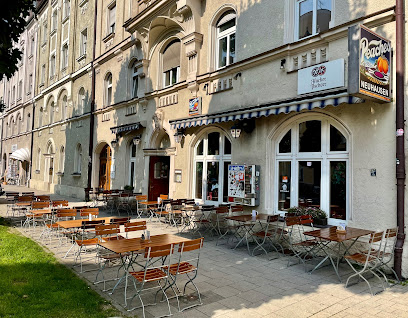
Bar Sehnsucht /Restaurant
Experience the vibrant nightlife of Munich at Bar Sehnsucht, where delicious drinks meet exceptional dining in a trendy rock-inspired atmosphere.
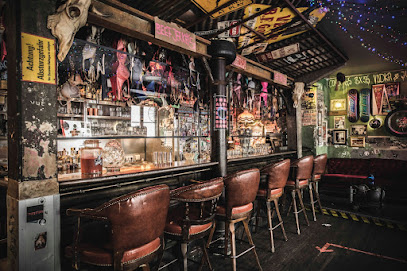
Alchimiste Belge
Discover Alchimiste Belge, a cozy bar in Salzburg offering an extensive drink menu and a welcoming atmosphere for relaxation and socializing.
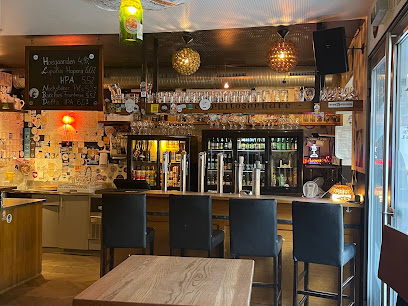
Auroom
Experience the art of mixology at Auroom, a premier cocktail bar in Munich's lively Ludwigsvorstadt-Isarvorstadt district, where every sip tells a story.
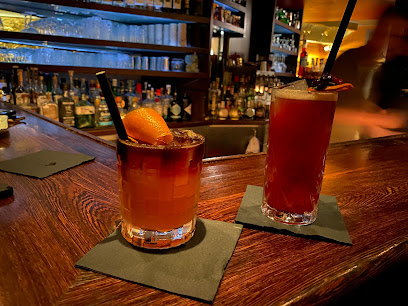
Local Phrases about Alps
-
- HelloGriaß God
[gree-ahss god] - GoodbyePfiat di
[pfee-aht dee] - YesJa
[yah] - NoNein
[nine] - Please/You're welcomeBitte
[bit-teh] - Thank youDanke
[dahn-keh] - Excuse me/SorryEntschuldigung
[ent-shool-dee-goong] - How are you?Wie geht's?
[vee gayts] - Fine. And you?Gut. Und dir?
[goot oond deer] - Do you speak English?Sprichst du Englisch?
[shpree-khst doo eng-leesh] - I don't understandIch verstehe nicht
[ikh fehr-shteh-eh neekt]
- HelloGriaß God
-
- I'd like to see the menu, pleaseIch möchte bitte die Speisekarte sehen
[ikh merkhte bit-teh dee shpy-suh-kahr-teh zay-en] - I don't eat meatIch esse kein Fleisch
[ikh ess-eh kine flysh] - Cheers!Prost!
[prohst] - I would like to pay, pleaseIch möchte bitte zahlen
[ikh merkhte bit-teh tsah-len]
- I'd like to see the menu, pleaseIch möchte bitte die Speisekarte sehen
-
- Help!Hilfe!
[hil-feh] - Go away!Geh weg!
[gay vehg] - Call the Police!Rufen Sie die Polizei!
[roo-fen zee dee poh-lee-tsye] - Call a doctor!Rufen Sie einen Arzt!
[roo-fen zee ayn-en ahrts] - I'm lostIch habe mich verirrt
[ikh hah-buh meekh feh-reert] - I'm illMir ist schlecht
[meer ist shleht]
- Help!Hilfe!
-
- I'd like to buy...Ich möchte kaufen...
[ikh merkhte kow-fen] - I'm just lookingIch schaue nur
[ikh shou-eh noor] - How much is it?Wie viel kostet es?
[vee feel kaws-tet es] - That's too expensiveDas ist zu teuer
[dahs ist tsoo toy-er] - Can you lower the price?Können Sie den Preis senken?
[ker-nen zee den prees zeng-ken]
- I'd like to buy...Ich möchte kaufen...
-
- What time is it?Wie spät ist es?
[vee shpayt ist es] - It's one o'clockEs ist ein Uhr
[es ist iyn oor] - Half past (10)Halb (zehn)
[halb (tsayn)] - MorningMorgen
[mohr-ghen] - AfternoonNachmittag
[nahkh-mit-tahk] - EveningAbend
[ah-bent] - YesterdayGestern
[geh-stern] - TodayHeute
[hoy-teh] - TomorrowMorgen
[mohr-ghen] - 1Eins
[ayns] - 2Zwei
[tsvay] - 3Drei
[dry] - 4Vier
[feer] - 5Fünf
[fuenf] - 6Sechs
[zeks] - 7Sieben
[zee-ben] - 8Acht
[ahkht] - 9Neun
[noyn] - 10Zehn
[tsayn]
- What time is it?Wie spät ist es?
-
- Where's a/the...?Wo ist ein/der...?
[vo ist iyn/dehr] - What's the address?Was ist die Adresse?
[vas ist dee ah-drehs-seh] - Can you show me (on the map)?Kannst du mir zeigen (auf der Karte)?
[kanst doo meer tsay-gen (owf dehr kahr-teh)] - When's the next (bus)?Wann kommt der nächste (Bus)?
[vahn kohmt dehr naykhs-teh (boos)] - A ticket (to ....)Eine Fahrkarte (nach ....)
[iyn-eh fahr-kahr-teh (nahkh)]
- Where's a/the...?Wo ist ein/der...?
History of Alps
-
The German Alps were originally inhabited by Celtic tribes before the Roman conquest. These early settlers left behind numerous artifacts and settlement ruins, indicating a thriving community that engaged in farming, herding, and trade. The influence of the Roman Empire brought infrastructure, such as roads and fortifications, which facilitated the movement of goods and people across the mountainous terrain.
-
During the medieval period, the German Alps saw the establishment of numerous monasteries, which became centers of learning, culture, and economic activity. The Benedictine Abbey of Ettal, founded in 1330, is a notable example. These religious institutions played a crucial role in the development of agriculture, viticulture, and education in the region.
-
The 'white gold,' or salt, from Berchtesgaden and Bad Reichenhall significantly contributed to the economic development of the German Alps. Salt mining and trade flourished from the Middle Ages onwards, leading to the growth of towns and the construction of impressive architectural structures, such as the Alte Saline in Bad Reichenhall, which displays the historical significance of salt production.
-
The Napoleonic Wars brought significant territorial changes to the German Alps. The region was influenced by the shifting control between the Austrian Empire and the Kingdom of Bavaria. The Congress of Vienna in 1815 ultimately placed most of the German Alps under Bavarian control, shaping the political landscape that persists to this day.
-
The 19th century marked the beginning of tourism in the German Alps, spurred by the Romantic movement and the advent of railways. Figures like King Ludwig II of Bavaria, who built the famous Neuschwanstein Castle, played a pivotal role in drawing visitors to the region. The Alps became a destination for health retreats, mountaineering, and scenic travel, laying the foundation for the modern tourism industry.
-
During World War II, the German Alps were strategically significant for the Nazi regime. The Kehlsteinhaus, also known as the Eagle’s Nest, was a mountain retreat built for Adolf Hitler on the Obersalzberg near Berchtesgaden. It served as a symbol of Nazi power and a site for diplomatic meetings. Today, it stands as a historical monument and a stark reminder of the war's impact on the region.
-
After World War II, the German Alps underwent significant reconstruction and modernization. The region saw the development of infrastructure, including roads and ski resorts, which bolstered the tourism industry. Efforts to preserve natural landscapes and cultural heritage have been balanced with the growth of tourism, leading to the establishment of national parks and conservation areas.
Alps Essentials
-
The German Alps can be accessed via several international airports, the most convenient being Munich Airport (MUC) and Innsbruck Airport (INN) in Austria, which is close to the German border. From Munich, you can take a train or rent a car to reach various towns and villages in the Alps such as Garmisch-Partenkirchen, Berchtesgaden, or Oberstdorf. The train journey from Munich to Garmisch-Partenkirchen takes approximately 1.5 hours. Alternatively, you can drive, which provides flexibility to explore the region at your own pace.
-
Public transportation in the German Alps is reliable and efficient. Regional trains and buses connect most towns and attractions. For more remote areas, renting a car is advisable. Many towns offer bike rentals, and cycling is a popular way to explore. Cable cars and funiculars are available for reaching mountain peaks. Ensure to check schedules as some services may be seasonal.
-
The official currency in Germany is the Euro (EUR). Credit cards are widely accepted in hotels, restaurants, and shops, but it is advisable to carry some cash, especially in smaller villages and rural areas. ATMs are available in most towns, but it's wise to withdraw sufficient cash before heading to remote areas.
-
The German Alps are generally safe for tourists. However, standard precautions should be taken. Avoid leaving valuables in plain sight and be cautious in crowded places. While there are no specific high-crime areas targeting tourists, always stay vigilant, especially in larger towns and tourist hotspots. For hiking, ensure you are well-prepared and aware of the weather conditions.
-
In case of emergency, dial 112 for immediate assistance. This number connects you to fire, medical, and police services. Most towns have medical facilities and pharmacies where you can purchase over-the-counter medications. It is advisable to have travel insurance that covers medical emergencies. For mountain emergencies, the Bergwacht (mountain rescue service) is highly efficient.
-
Fashion: Do wear layers and appropriate footwear for hiking. Avoid overly casual clothing in upscale restaurants. Religion: Do respect local customs, especially in churches. Remove hats and keep voices low. Public Transport: Do be punctual and purchase tickets before boarding. Don’t speak loudly or play music. Greetings: Do greet people with a firm handshake. In Bavarian areas, a friendly 'Grüß Gott' is common. Eating & Drinking: Do try local specialties like Weisswurst and Brezen. Don’t forget to say 'Prost' before drinking beer.
-
To experience the Alps like a local, visit traditional markets and sample regional produce. Participate in local festivals such as Oktoberfest in Munich or Almabtrieb (cattle drive celebrations) in Alpine villages. Take advantage of the numerous hiking and biking trails, and don’t miss out on visiting local beer gardens for an authentic Bavarian experience. Engage with locals who are usually friendly and willing to share their knowledge about the area.
Nearby Cities to Alps
-
Things To Do in St. Anton am Arlberg
-
Things To Do in Munich
-
Things To Do in Bregenz
-
Things To Do in Dornbirn
-
Things To Do in Schellenberg
-
Things To Do in Ruggell
-
Things To Do in Kitzbühel
-
Things To Do in Mauren
-
Things To Do in Eschen
-
Things To Do in Gamprin
-
Things To Do in Triesenberg
-
Things To Do in Schaan
-
Things To Do in Vaduz
-
Things To Do in Davos
-
Things To Do in Balzers













